|
Nowadays soft skills are getting more and more important in the context of professional and daily life. It is essential to understand what key competencies we have and how to use them properly, what emotional intelligence and empathy is, how to build an effective group and maintain team spirit, how to manage conflicts. These were the topics explored during the course Soft skills and Emotional Intelligence (Tenerife, 13/03/2022-19/03/2022) by 16 participants from all over the Europe: Olga from Rigas namu parvaldnieks in Latvia, Andreja, Petra and Kajia from Osnovna šola Blaža Kocena Ponikva in Slovenia, Toshko, Velichka, Anna, Dimitrina and Anna Maria from 35 SEU Dobri Voinkov in Bulgaria, Virginija, Lora and Ligita from Gimnazijos 32 in Lithuania, Alka and Katarina from Public Open University of Zagreb in Coratia, Hennele and Pirjo-Anneli from Hyvinkään lukio in Finland. The first topics discussed in the course were the five pillars of Emotional Intelligence: we should be aware of our own emotions and feelings in order to understand other people better and communicate effectively. A good teacher is also a good leader of the classroom because they have to foster motivation and guide their students to reach a specific goal. We studied different leadership styles and tried to apply them in different situations. Communication is essential when it comes to teamwork. That’s why we dedicated our time to ways of communication: being able to show assertiveness can be tricky, however, by discussing this topic they saw that being assertive means to communicate what you want effectively.
Addressing and teaching diversity in the school environment and promoting tolerance is extremely important for transferring knowledge in a successful and right way. It was our crucial goal together with 11 participants during the Diversity in the classroom: teaching tolerance and overcoming prejudices and discrimination which took place in Bologna from the 27th of February to the 5th of March. It was a true pleasure to welcome Dina and Ana from Agrupamento de Escolas de Bom Sucesso, Kati and Cathrin from Leonardo da Vinci Campus Nauen, Miklós from Learning Innovation Ltd, Elena from Instituto de Educación Secundaria La Patacona, Jesús Ángel and María Pilar from IES García Lorca, Katerina from Arnissa High School, Sónia and Maria de Fatima from Agrupamento de Escolas Gabriel Pereira.
The part of the course dedicated to membership helped us to recognize how it feels to be excluded and how difficult it is to include others into our dynamics. The last, but not least, point of the week was empathy. We dug into feelings and emotions, fostering teachers to put themselves in other people’s shoes. Being aware of our emotions is crucial but it’s important as well to train ourselves and the students to express them. It is worth mentioning that we were not only studying, but also managed to visit and see cozy Bologna and enjoy Italian traditions, culture, history and of course cuisine. After all, it was a bright week full of new knowledge, practice, sharing, deep conversations and thoughts, ideas and emotions.
More information on this and other courses at this link: https://www.erasmustrainingcourses.com/course-catalogue.html Looking forward to seeing you again! (Italian version below) “To be a virtuous person is to display, by acts of will, all or at least most of the six ubiquitous virtues: wisdom, courage, humanity, justice, temperance, and transcendence.” Martin Seligman With these words, Seligman begins the Encyclopedia of Virtue, which is has been an important tool for the development of the MORALSTEAM project under the Erasmus+ programme. The encyclopedia gathers and systematizes the wisdom of both famous and lesser-known people and can be applied in everyday life. It can be quoted and discussed during lessons or informal activities, with families, with children and coworkers. According to the project partners, the encyclopedia is not only a great help for the moral education of children, but also a useful resource for adolescents, answering questions about relationships, decisions, and general attitudes towards the world. The Encyclopedia of Virtue consists of well-structured material based on the classification of CH. Peterson and M.E.P. Seligman, whose theories included the aforementioned six virtues and the corresponding character strengths. The authors based their system on philosophers’ and thinkers’ works, religious essays and scientific discussions, but they claim that it is flexible and can be adapted depending on the necessity. For instance, the Encyclopedia of Virtue is part of the Videogame developed in the MORALSTEAM Project, in which points are obtained as characters’ virtues and strengths. The material for the Encyclopedia was carefully selected in order for it to be suitable for 11-14 year-old children. However, according to the developers it can also be used by a wider age range as in the encyclopedia the virtues are explained both to younger and older readers. The Encyclopedia of Virtue will be accessible in several ways. It is displayed in the Videogame menu but it can also be downloaded online, printed and used as handout, analyzed, discussed and therefore used independently from the Videogame. The Encyclopedia of Virtue is available in the project's partner languages: Lithuanian, Italian, Bulgarian and English. The Encyclopedia is still waiting for children’s evaluation. During the second research phase, children and teachers will test the game into shcools and provide feedback, including an evaluation on the Encyclopedia of Virtue. We look forward to many useful reviews! L'“Encyclopedia of Virtue” all'interno del progetto MORALSTEAM“Essere una persona virtuosa significa mostrare, mediante atti di volontà, tutte o almeno la maggior parte delle 6 Virtù imprescindibili: Saggezza, Coraggio, Umanità, Giustizia, Temperanza, e Trascendenza.” Martin Seligman Queste sono le parole con cui Seligman apre la sua Encyclopedia of Virtue, che per il progetto MORALSTEAM finanziato dal programma Erasmus+ di cui ELA è partner, rappresenta un testo fondamentale sull’educazione morale. L’enciclopedia riunisce e organizza intuizioni di persone famose e non, che possono essere utili ed applicabili nella nostra vita quotidiana. Può essere citata e discussa durante le lezioni o durante attività di tipo informale, in famiglia, con i bambini e sul posto di lavoro con i colleghi. Secondo i partner del progetto, l’Enciclopedia non rappresenta soltanto un grande aiuto per l’educazione morale dei bambini, ma anche una risorsa utile per gli adolescenti in quanto può dare delle risposte in merito a relazioni sociali, scelte e generici comportamenti; aiutare quindi a “stare al mondo”. L’Enciclopedia presenta del materiale ben organizzato basato sulla classificazione di CH. Peterson e M.E.P. Seligman, le cui teorie includono le sopracitate 6 virtù e i corrispondenti punti forza. Gli autori hanno basato il loro sistema su opere, saggi religiosi e dibattiti scientifici di filosofi e pensatori, ma affermano di avere una rete di riferimenti flessibile a seconda delle necessità. L’Enciclopedia è parte del videogioco sviluppato all’interno del progetto, in cui ogni punto-forza guadagnato dai giocatori corrisponde ad una determinata virtù. Il materiale estratto dall’Enciclopedia è stato attentamente selezionato per renderlo fruibile al target del progetto (ragazzi di 11-14 anni). Nonostante ciò, come affermano gli ideatori, può essere anche utilizzato per persone di età maggiore, dato che nell’Enciclopedia, le Virtù, vengono spiegate con parole comprensibili ad entrambi i target di lettori. È possibile accedere al contenuto dell’Enciclopedia in diversi modi: dal menù principale del videogioco oppure può essere scaricato da internet, stampato e usato come manuale tascabile, per analizzarlo e discuterne in maniera indipendente dal videogioco. L’Enciclopedia è disponibile nelle lingue dei paesi partner: Lituano, Italiano, Bulgaro e Inglese. Il prossimo step? Vi sarà una valutazione da parte delle scuole: durante la seconda fase della ricerca i bambini e gli insegnati testeranno il gioco e forniranno dei feedback anche sull’Encyclopedia of Virtue. Stay tuned e… speriamo in delle recensioni positive!
Chaque personne est un petit univers qui se différencie des autres à travers des caractéristiques uniques. En effet, chaque esprit humain s'est développé de façon singulière en fonction de facteurs génétiques et environnementaux. Notre diversité en tant qu’êtres aux cerveaux différents se perçoit dans tous les aspects de notre vie: notre façon de parler, d'aborder les autres, de percevoir la réalité et, en particulier, d'apprendre et de gérer la réalité qui nous entoure. C’est tout au long du cours spécial en français "Introduction à la Diversité et à l’Éducation inclusive", tenu du 28/03/2022 au 1/04/2022, qu’on a exploré ces deux derniers aspects avec le but de répondre aux besoins de nos participants du EPFC (Enseignement de Promotion et de Formation Continue de l'ULB et de la CCIB asbl) en matière de création d'un environnement accueillant et inclusif pour tous les différents nécessités d’apprentissage des élèves.
Un autre concept qu’on a abordéc’était l'empathie. Des activités ont été proposées dans le but de reconnaître l'importance de chaque élève de la classe, de ses besoins et de ses diversités, afin de tirer le meilleur parti du potentiel de chacun. L'empathie liée à l'adhésion peut entraîner des changements radicaux dans la classe pour que chacun se sente respecté et responsabilisé. Vers la fin du cours, on a fait un changement de cap et on s’est dirigé vers des outils de soutien en ligne pour donner le meilleur soutien possible aux élèves ayant des nécessités particulières comme, par exemple, des troubles de l’apprentissage. On a fait de la pratique avec des plateformes comme Immersive Reader, Thinglink et beaucoup d’autres.
Today, we often feel overwhelmed with the amount of things to do and it is becoming increasingly difficult to manage work-related stress in our daily lives. Eight teachers and educational staff from different parts of Europe tried to understand the causes of stress and how to deal with it during the course “Stress and Conflict Management: the way to resilience and satisfaction” which took place in Palermo from the 3rd to the 9th of April. The participants came from Kimpisen lukio (Finland), Maison de l'Europe Bordeaux-Aquitaine (France), Sint Ursula instituut (Belgium) and Pallas Athene College (Nederlands). They shared their experiences and got to know each other through a lot of practical activities aimed at acquiring knowledge and practices to handle stress and conflict. 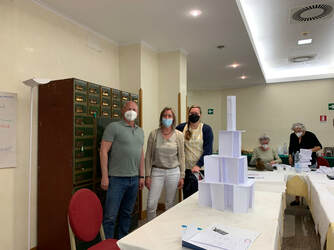 After a brief introduction to the course, we tried to give a definition of stress starting from a brainstorming. They tried to identify the stressors, the causes of stress, which can be physical, environmental, family-related and work-related. After focusing on the positive and negative aspects of stress, the participants understood that stress is not always bad because in moderate amounts it can be stimulating to achieve performance improvements. Therefore, they learned to distinguish between bad stress (called Distress) and good stress (called Eustress). During the course, the participants acquired some cognitive and behavioral useful strategies to overcome stressful situations at school and in the workplace in general. They learned, for instance, the importance of time management through practical activities aimed at increasing their ability to manage time and avoid overplanning and time stealers. Guided by the trainer, they also did breathing exercises, progressive muscle relaxation and visualization, useful good practices to do when we feel stressed-out. Moreover, the group focused on the features of empathy, which is a fundamental element when talking about conflict management because it allows you to understand the others. They learned to distinguish empathy from other attitudes and acquired some strategies to be more empathetic. After focusing on different communication styles, the participants explored the topic of conflict starting from a fun group activity in which each of them had to give a different contribution to handle a conflict situation. Obviously it was not easy but they learned to see conflicts as opportunities and how to make the most of them, especially in the working environment and in the classroom. They were provided with different conflict management strategies to use depending on the situation and everybody shared their perspective and experiences. Apart from the training activities, the group also had the opportunity to do two walking tours through Palermo city center, to discover its charming beauty and contradictions, and taste typical Sicilian cuisine. They also participated in a cultural visit to Monreale and its cathedral. The course was a great experience for all the group and everybody gave their contribution to make the most of it by sharing ideas and experiences. ELA is looking forward to welcoming you again! More information on this and other courses at this link: https://www.erasmustrainingcourses.com/course-catalogue.html
A new edition of the course “The best for preschool teachers” took place in Bologna from 13/02/2022 to 19/02/2022. There, 10 participants from the UK, Estonia and Spain had the pleasure to met each other: Kierna from Windmill IPS, Riinu, Anne and Ksenia from Alasniidu Kindergarten, Raquel and Irene from CPI Valdespartera III, Ana Belen and Maria Isabel from Escuela Infantil Pepita Pérez, Pili and Beatriz form CEIP Estepar. The course began with some practical activities to break the ice, share expectations and contributions and discuss about the best practices linked to preschool pedagogy. The teachers had also the chance to present their schools to the others: this was a perfect way to get to reach a wider understanding of preschool education in Europe.
Moving on discovering the Italian preschool experience, we had the pleasure of virtually hosting a Montessori teacher from a Montessori preschool in Bologna who explained the group the history, the main principles of the method, the use of Montessori materials and the projects carried out by the school.
We finally discovered the principles and theories of non formal education and, to better understand the method, some activities and games were implemented. The week arrived to an end and it was time for the teachers to come back home with a luggage full or memories and experiences.
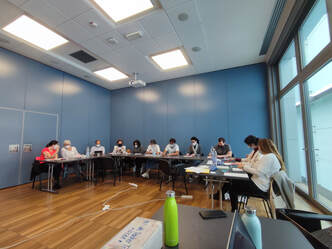 Being a teacher nowadays is not only about being knowledgeable about a topic. A good teacher has to be able to communicate with students and colleagues. This requires a great set of competences. In this training our participants learnt about what are known as “soft skills” that include emotional intelligence, empathy, leadership, team-work, public speaking and effective communication. This course allowed teachers to exchange roles and become students once again. By a combination of theoretical and practical activities they were able to get involved and exchange experiences and opinions. At the beginning of the training they discussed their fears and expectations, trying to understand what they could bring to the table. Being able to confront each other made them realize how, even if they came from different countries, they shared the same feelings and struggles. This is why the first soft skill they tackled was Emotional Intelligence. As teachers they have to be able to recognise not only their own feelings but also other people’s emotions, in order to be aware of themselves and their surroundings. To let go of their burdens one of the activities, suggested by one of the participants, was to metaphorically take those unnecessary negative feelings off their bodies and throw them in the middle of a circle. They reflected on strategies to overcome bad reactions to certain situations in real life, both personal and professional. These concepts led them to discover how tricky it is to always show empathy, especially when we haven’t gone through the same experience as the other person. A good teacher is also a good leader of the classroom. They have to give motivation and guide their students to reach a specific goal, while also being respected. First of all, the participants learnt about what it means to set a SMART goal for themselves, so that they can inspire others to reach their own. Leadership comes in different forms, but not all of them are effective when it comes to managing a classroom or being part of a group of coworkers. These particular situations require three specific skills: teamwork, effective communication and assertiveness. By sharing their own experiences it came out that one of the most difficult things to do is to say “no”. It was an important part of this training because they could see it was a shared issue. By discussing this topic they saw that being assertive when it comes to what you want does not mean to be impolite or aggressive, but it means to be respectful of yourself and others. 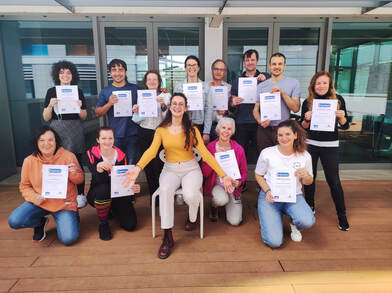 Since communication was one of the central topics, each one of them had to prepare a short speech to perform in front of the others. Speaking in front of a crowd can be challenging, but thanks to this activity they gained confidence and learnt some tips and tricks to deliver a speech effectively, using also their body language to create a connection with the audience. Working with people in general can also lead to experiencing conflicts and unpleasant situations. The topics discussed in the previous days, in particular effective communication, self-awareness, empathy and emotional intelligence were essential in dealing with this last soft skill. Conflict management is a difficult task, but it can also be an opportunity to grow and create new connections. It is now always easy to respond in the right way when it comes to conflict, but the participants were given different examples of how there is an appropriate way for each situation. Sometimes it is necessary to take a step back for the greater good so as not to get stuck in a discussion that does not benefit anyone. Thank you for being such a nice and participative group. It was a wonderful experience that allowed us to learn from each other. We hope that what you learnt in this training will help you with creating an even deeper connection to your students and colleagues! Discover more about this course: Soft Skills and Emotional Intelligence for teachers and education staff. It is a well-known fact that nowadays soft skills are getting more and more important in the context of professional and daily life. It is essential to understand what key competencies we have and how to use them properly, what emotional intelligence and empathy are, how to build an effective group and maintain team spirit, how to manage conflicts and stress and struggle with our rooted stereotypes and prejudices. These are the reasons why we decided to organize and conduct an extremely special course for 11 incredible motivated participants from a Polish university of the Third Age (Uniwersytet III Wieku w Zawierciu). Our two weeks were full of new knowledge, a bunch of practice, deep conversations and discussions, emotions, fun, smiles and of course unique Sicilian culture which we explored at full! The first week was dedicated to the following topics: Key Competences and Soft Skills, Emotional Intelligence and Empathy, Group Dynamics and Team Building, Leadership and Assertiveness. We caught theoretical concepts of the previously mentioned points and did many practical exercises to deepen our understanding. Participants were creating a lot of flipcharts with the key soft skills they consider essential for their organization, with a portrait of a real leader and empathy map. We also tried to put ourselves into others’ shoes and discuss truly happened situations from other points of view and feelings. During the Group Dynamics workshop participants learned how to manage the group effectively during the competition for the highest paper tower built. We’ve also understood how it feels to be excluded, learnt leadership styles: which, where and how to use them and how to say NO in a respectful, but firm way. It was a really productive and awesome experience! 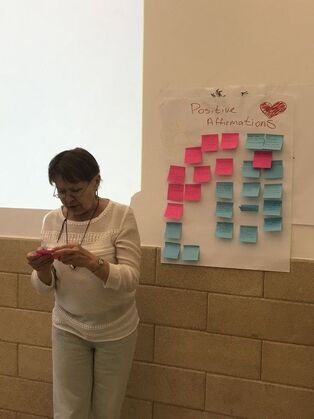 On the second week we were discovering the world of Stress and Conflict Management, Stereotypes, Prejudicies and Discrimination, Culture and Indentity and finally Formal and Non-formal Education. Participants were exploring the notion of stress, behavioral and cognitive strategies with their own examples and writing positive affirmations and gratitudes. It was extremely useful as the level of stress in a modern world is high. We’ve also studied Conflict, its positive and negative sides, conflict management strategies and ways of communication. The last days were about Stereotypes, national and gender ones, we were providing our examples and discussing their causes. Moreover we’ve initiated an interesting debate on What does it mean to be a European and Polish in particular. Many new thoughts and ideas were stimulated during that discussion. It is worth mentioning that we were not only studying, but also managed to visit and see magical chaotic Sicily and explore Palermo and its surroundings. Participants visited historical sites in Palermo, botanical garden, port and tasted many traditional dishes and street food. Likewise, they visited Mondello beach, magnificent Monreale cathedral with its huge golden mosaics known worldwide and Arab-Norman masterpiece Cefalu with its cozy romantic atmosphere and seaside. Some of them even climbed the Etna Volcano! Such an adventure! Moreover, every day participants had the opportunity to learn more about Sicilan culture as they were provided with interactive activities on Sicilian cuisine, symbols, history, sights, the Italian language, gestures and Italian songs. It was just unforgettable how much everyone was excited and captivated! We appreciate it a lot!
Bullying behaviors, whether virtual or face-to-face, have negative impacts not only on victims and survivors, but on bullies too. The aim of this course is to learn about effective ways to prevent all forms of bullying in education and school settings. The new edition of the course “How to stop bullying and cyber bullying in schools and promote social emotional learning” took place in Tenerife from 27/03/2022 to 02/04/2022. The participants came from all across Europe, with Liisa Ståhle, Riitta Nevala, Tarja Satumäki, Auli Peltola from Oulunkylän yhteiskoulu in Finland; Orsolya Bagladi from Feherlofia Waldorf School in Hungary; Aimée Dinnbier, Rico Christalle from Zentrum für Förderpädagogik in Belgium, and Gordana Gazdic from Gazdić-Buhanec in Croatia. 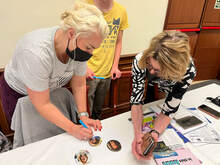 We started with our introduction day where we brainstormed all the different kind of bullying behaviours: what’s the difference between bullying and conflict? What can bullying look like? Who’s participating in these scenarios? We moved on to talk about the victim: which are the risk factors that lead children to be bullied? And what can we do to prevent this situation? What are the initiatives that can be carried out to prevent bullying behaviours? We looked at these topics by 4 different points of view: family, school, individual and community. One of the main and most difficult types of bullying to be eradicated is cyber bullying. Nowadays Internet has a major role in the lives of our kids and may have a negative impact on them. However, it also has some positive sides. With some practical activities we explored the world of cyber bullying. We also discussed about the differences between traditional and cyber bullying and about the things that they have in common. To understand and put ourselves in the shoes of bullying victims we implemented a very powerful activity which can be used both with students, parents and teachers to raise awareness. 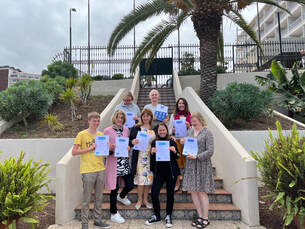 In order to prevent bullying behaviours it is vital to foster a positive classroom environment. This is why we explored the topics of emotional intelligence, membership and inclusion and collaboration. These are pillars for a supportive classroom and should not be underestimated. Of course we discussed about this with a lot of non formal and creative activities and games, thanks to which it was impossible to get bored ;) Discover more about this course in: https://www.erasmustrainingcourses.com/stop-bullying.html |
Welcome to the ELA Blog. Here you will find articles and photos of our courses and have a look at the topics addressed during the week in Bologna, Palermo and Tenerife. You will also have the chance to take a peek at our projects and check out what we have been up to.
Archives
July 2024
Categories |
-
Course catalogue
- 2023-2024 course catalogue
- Soft Skills >
- ICT and New Technologies >
- Inclusion and Diversity >
-
Innovative Teaching Methods
>
- Innovative teaching methods discovery
- Non-formal education teaching methods
- Dual education and work-based learning
- Teaching leadership and entrepreneurship
- Project based learning
- Game based learning and gamification
- Green skills
- Outdoor education
- Outdoor education trekking edition
- Promoting creativity and critical thinking
- Languages and EU projects >
- Preschool >
- Erasmus Plus KA1
- What we do
- About us
- Locations
- Blog
- Contact us
 English
English български
български Čeština
Čeština Español
Español Français
Français ελληνικά
ελληνικά Italiano
Italiano Polski
Polski Português
Português Română
Română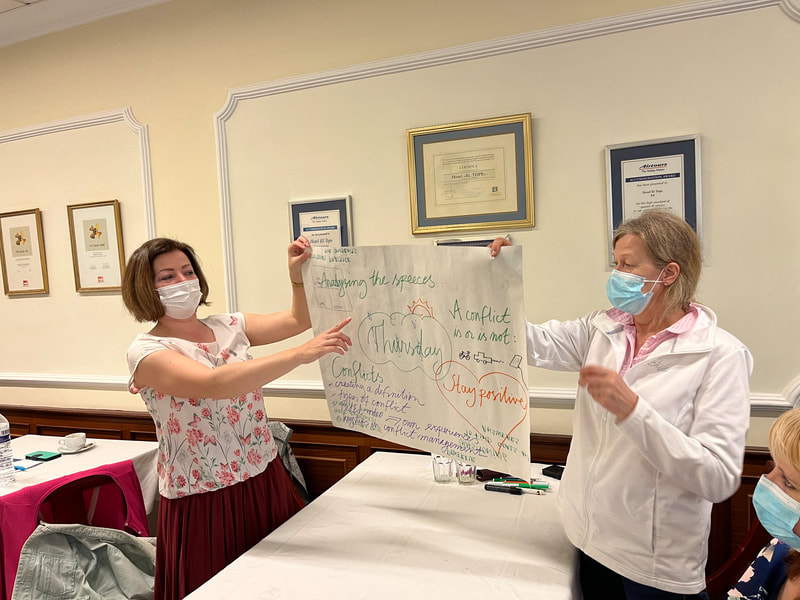
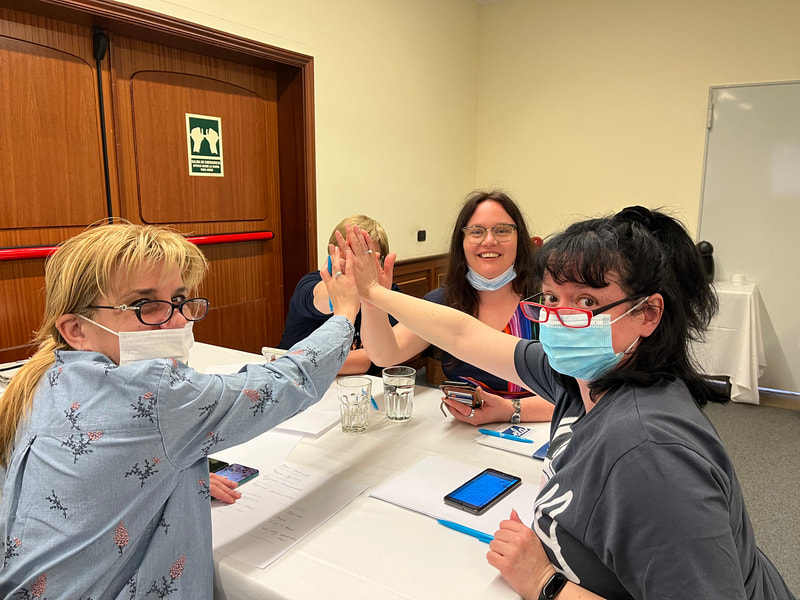
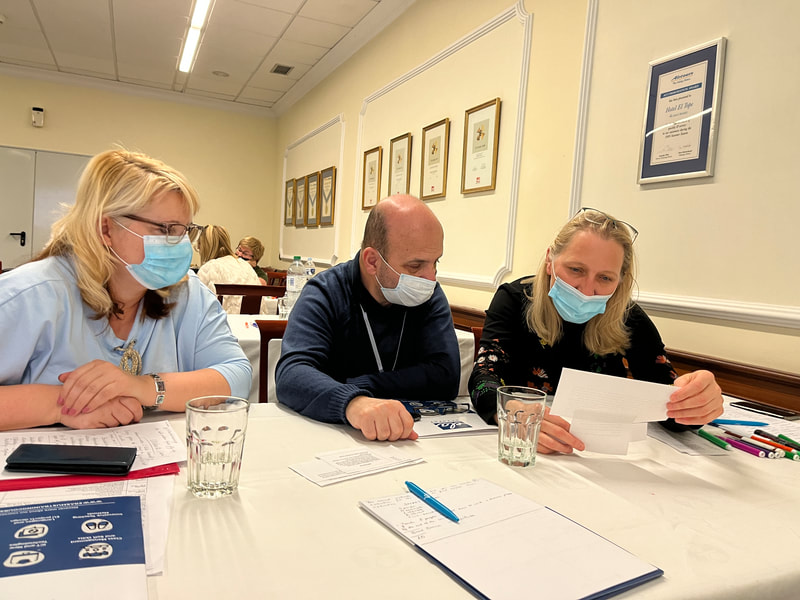
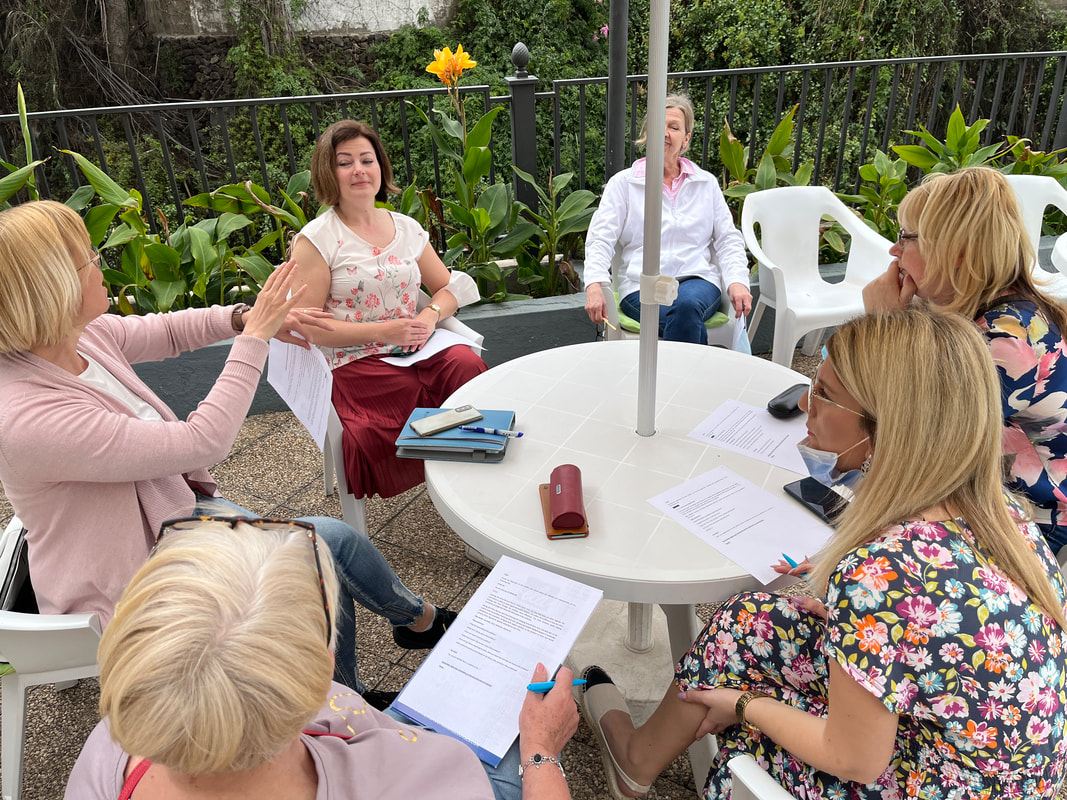
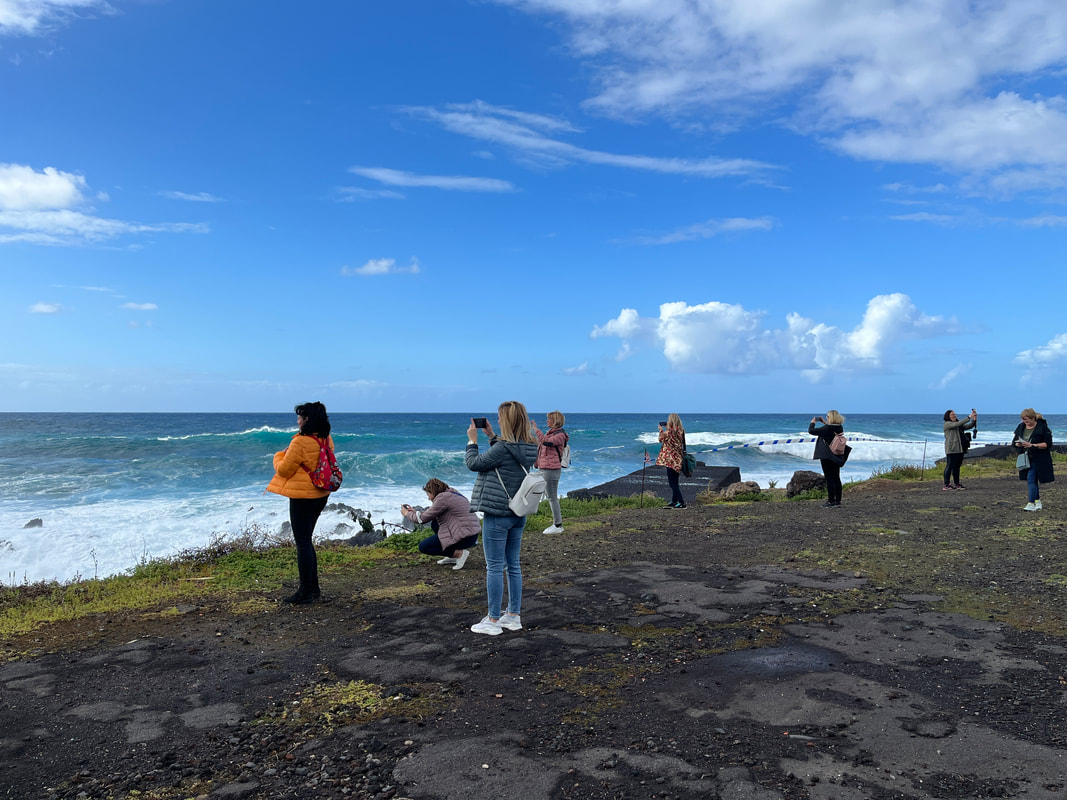
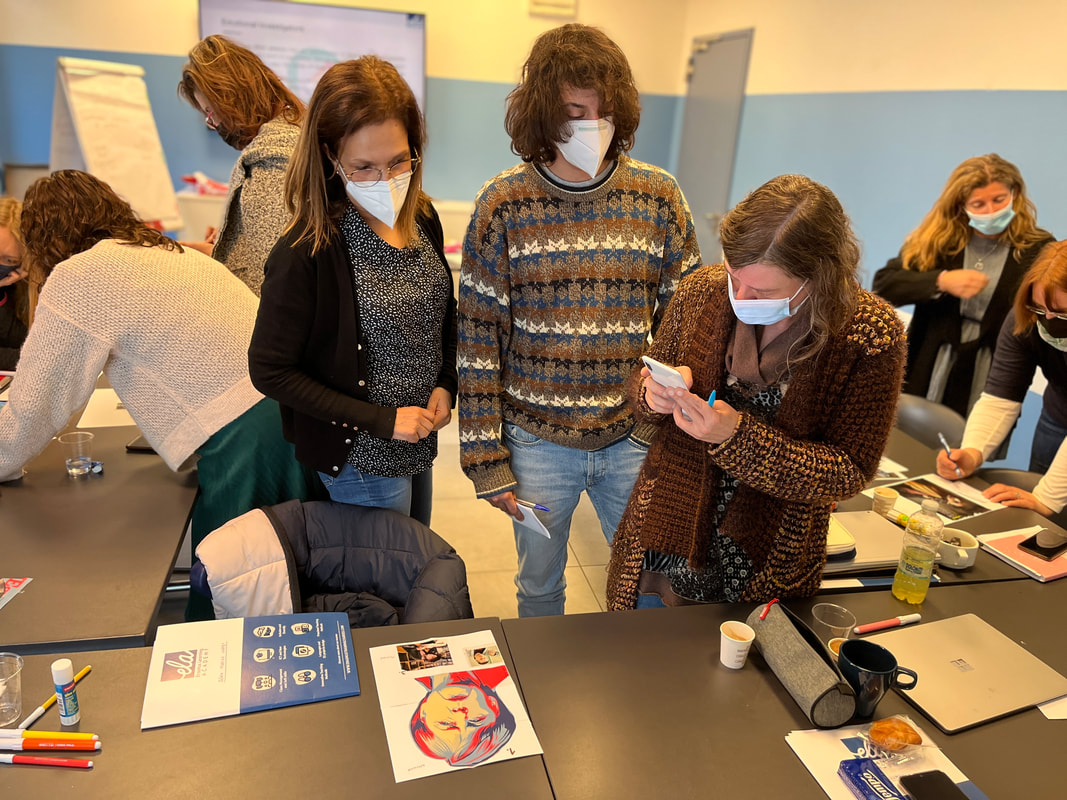
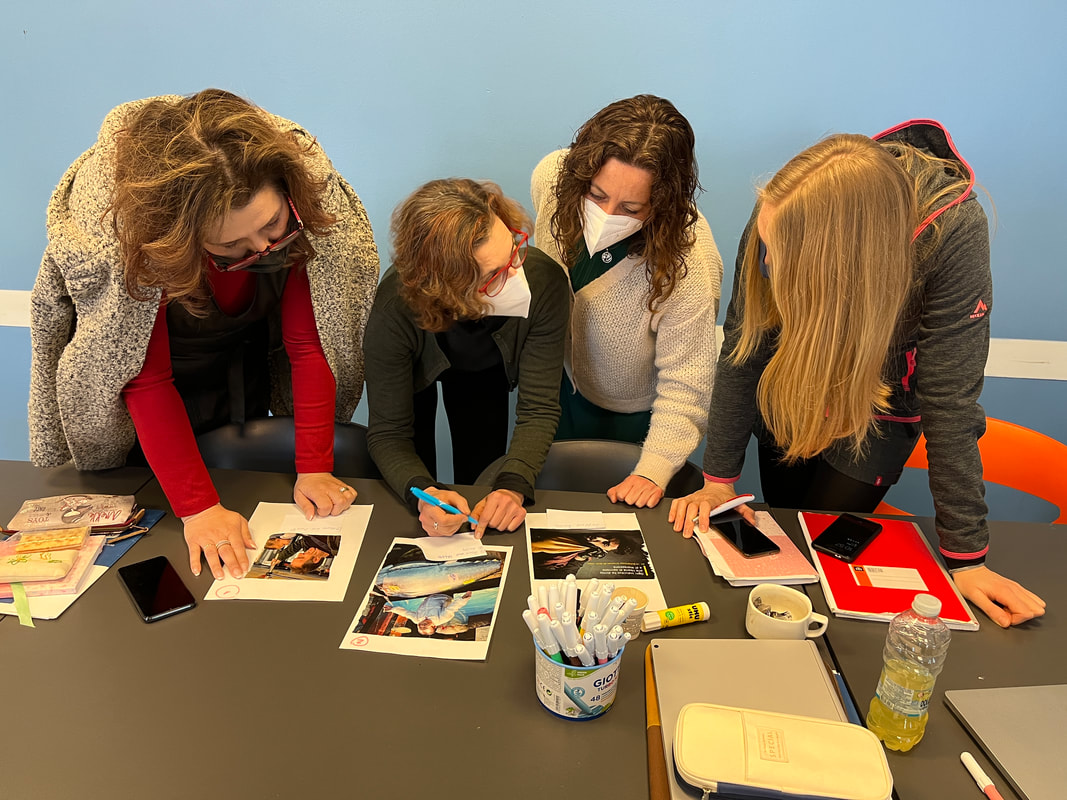
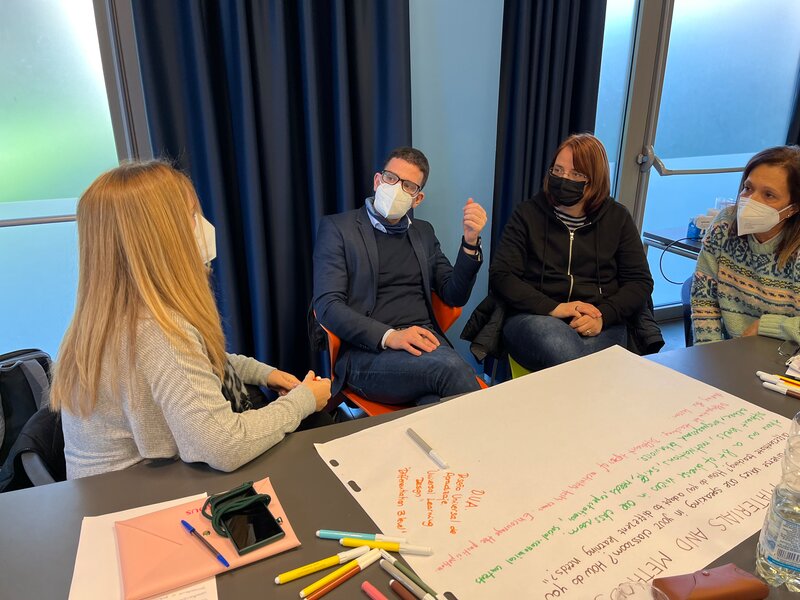
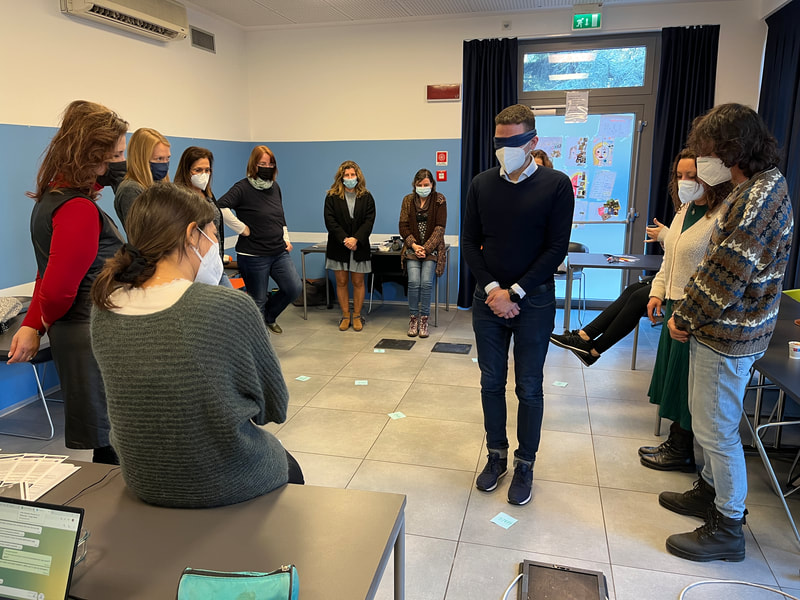
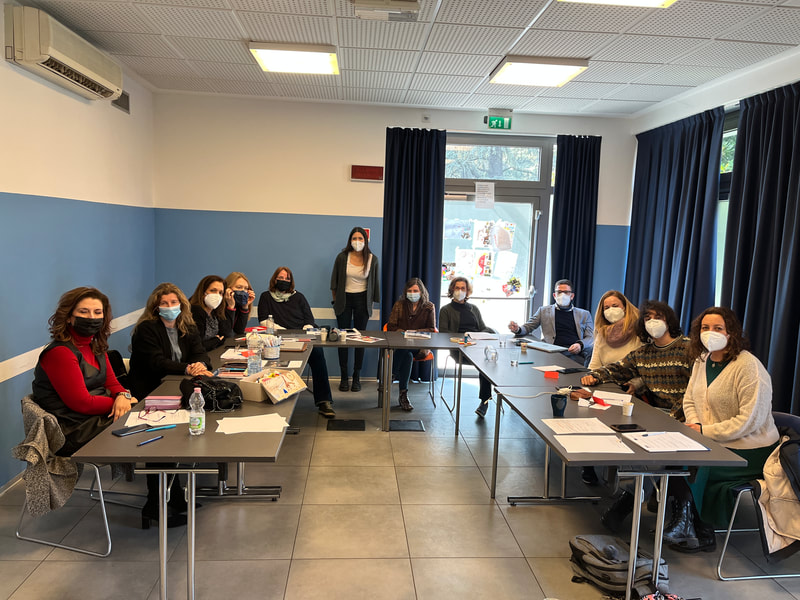
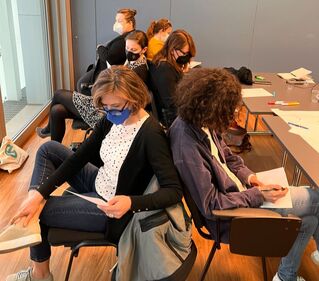

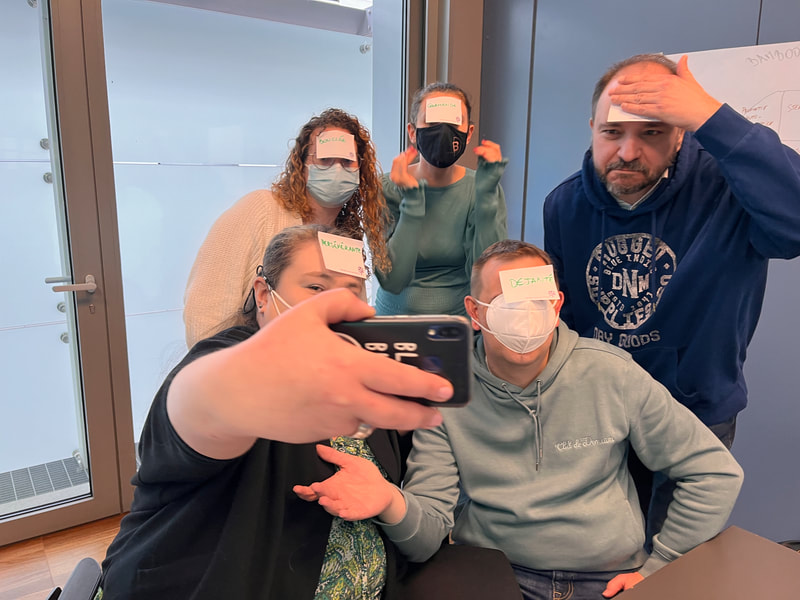
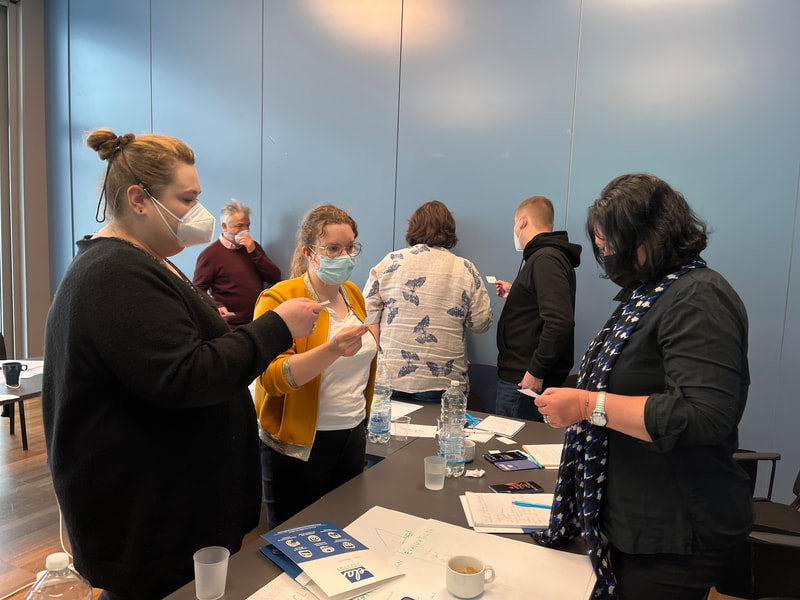
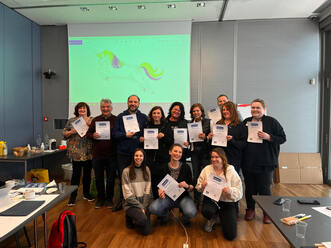
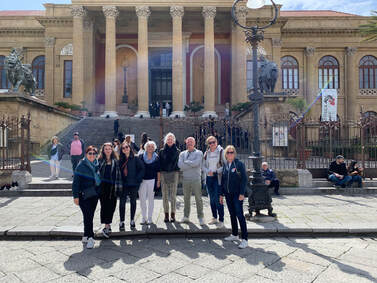
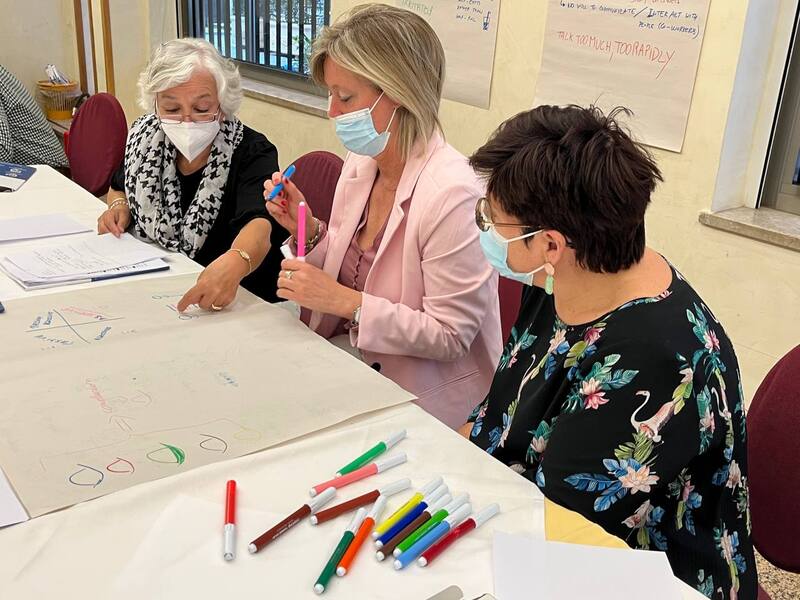
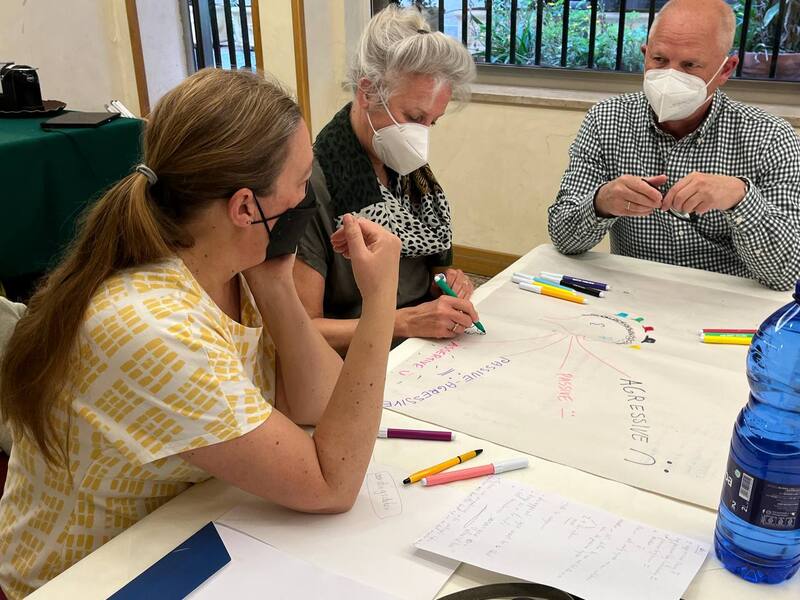
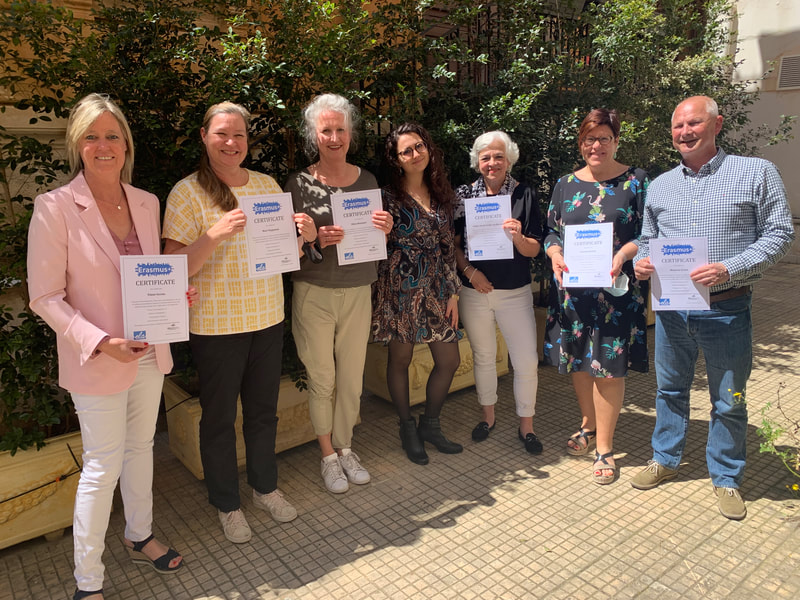
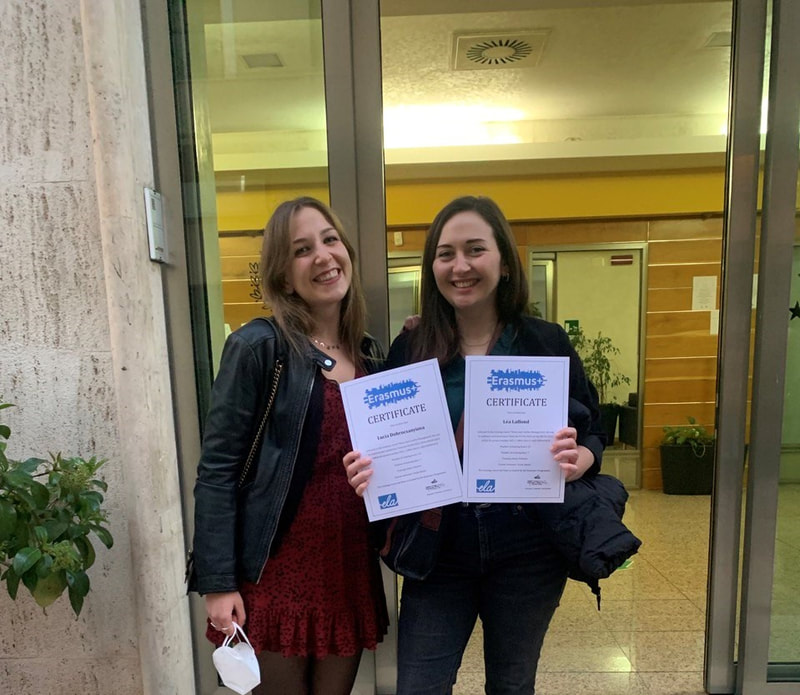
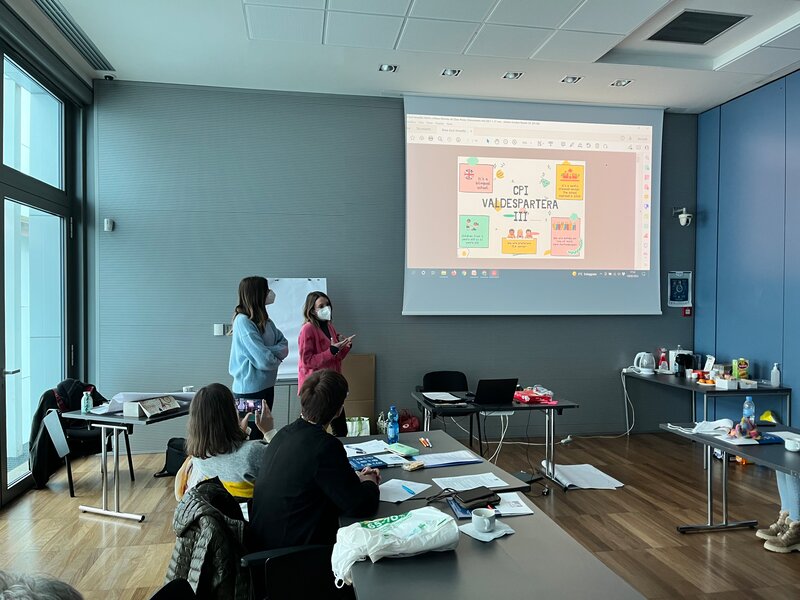
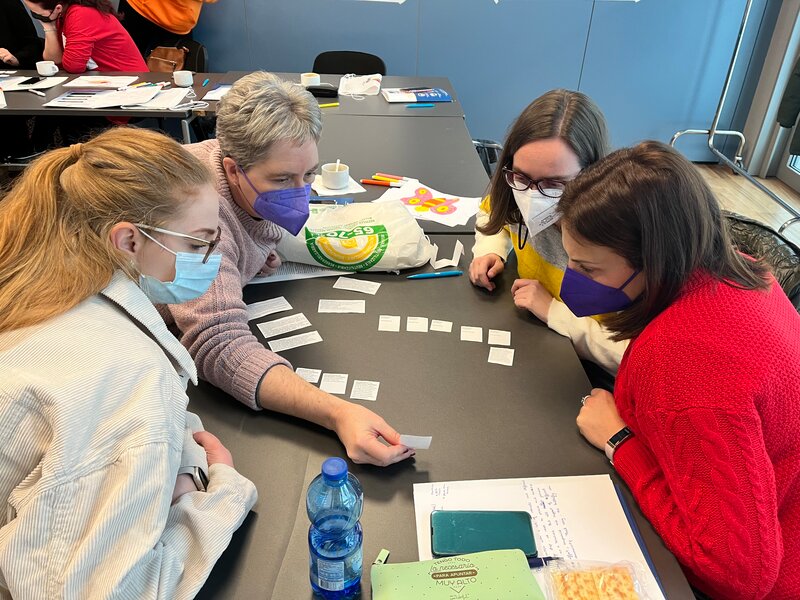
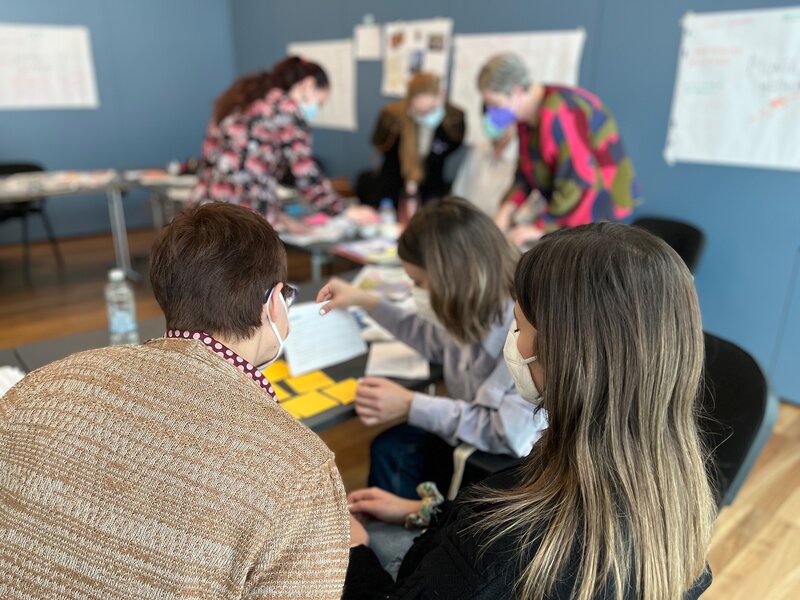
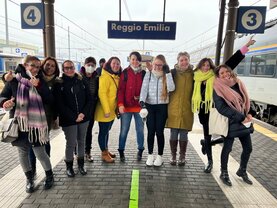
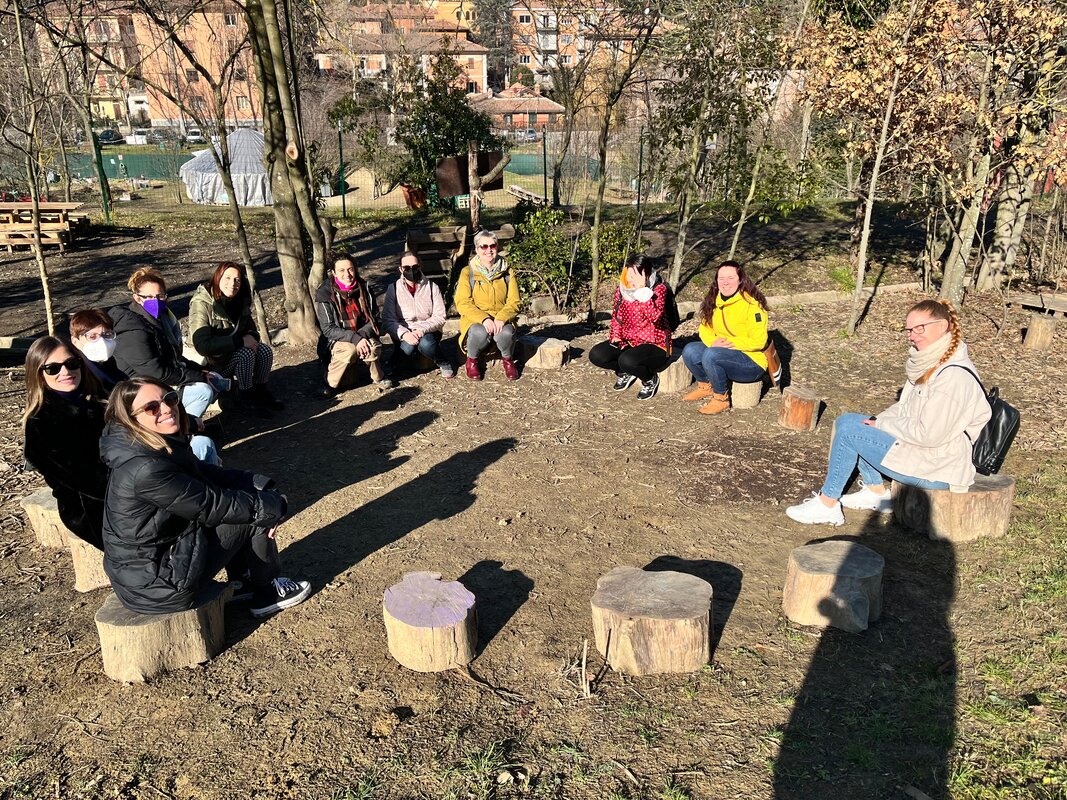
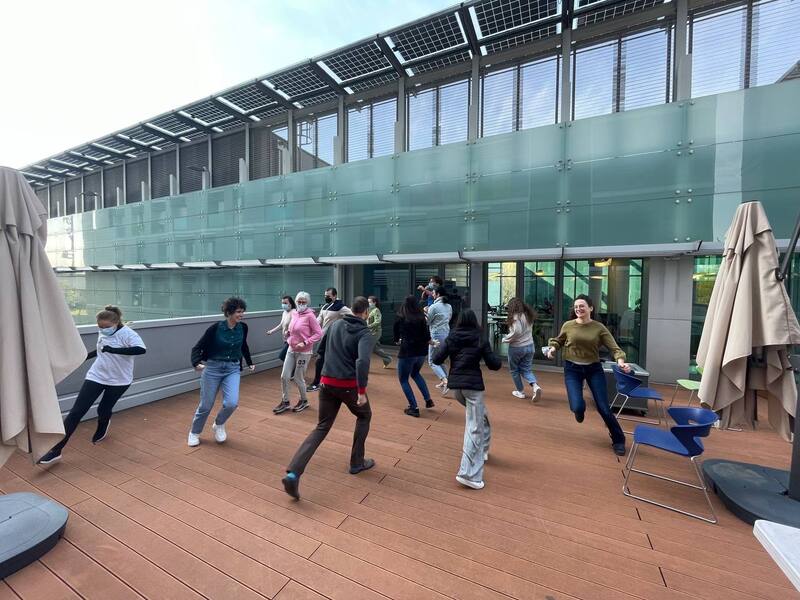
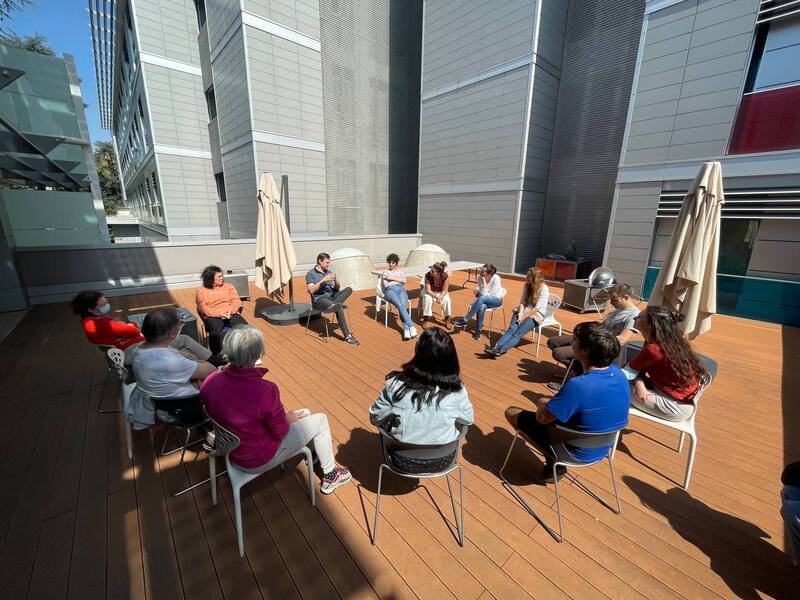
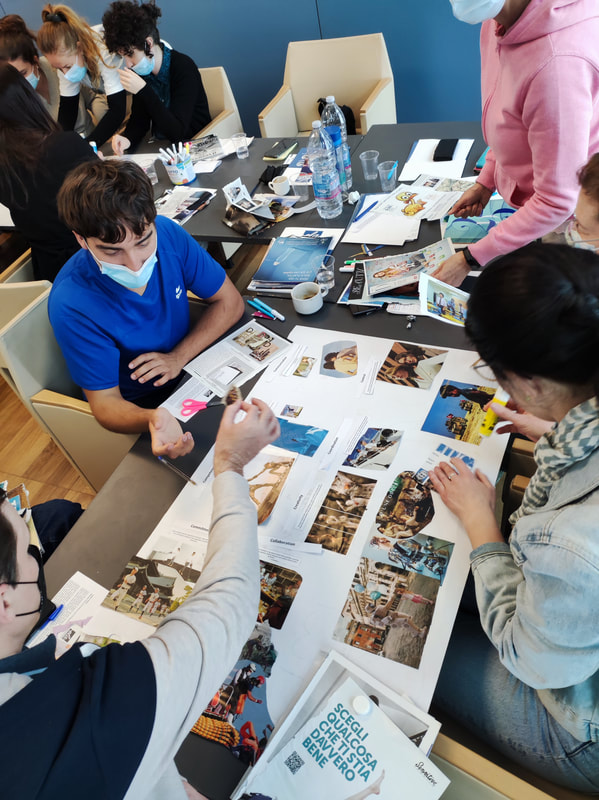
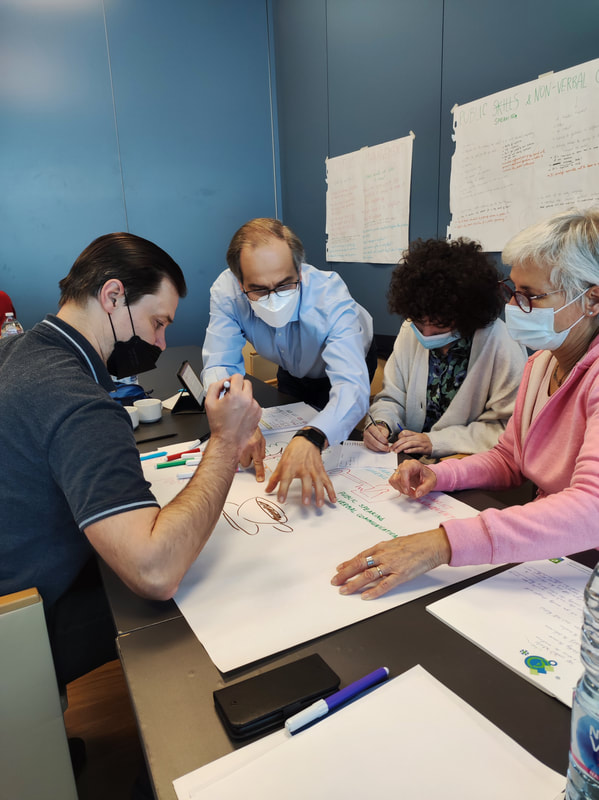
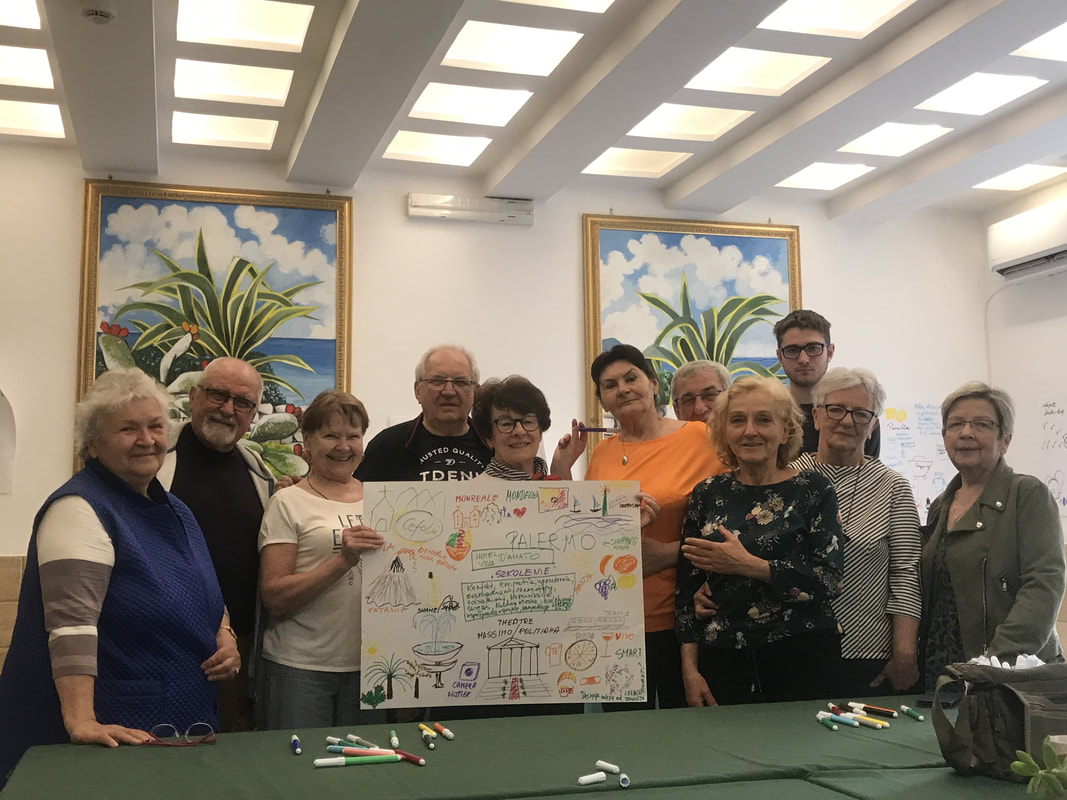
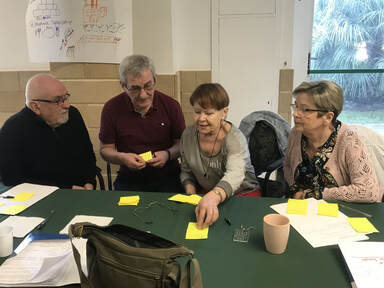
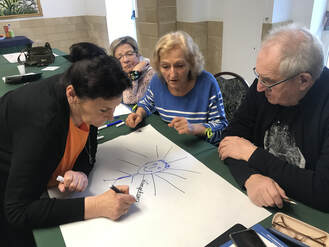
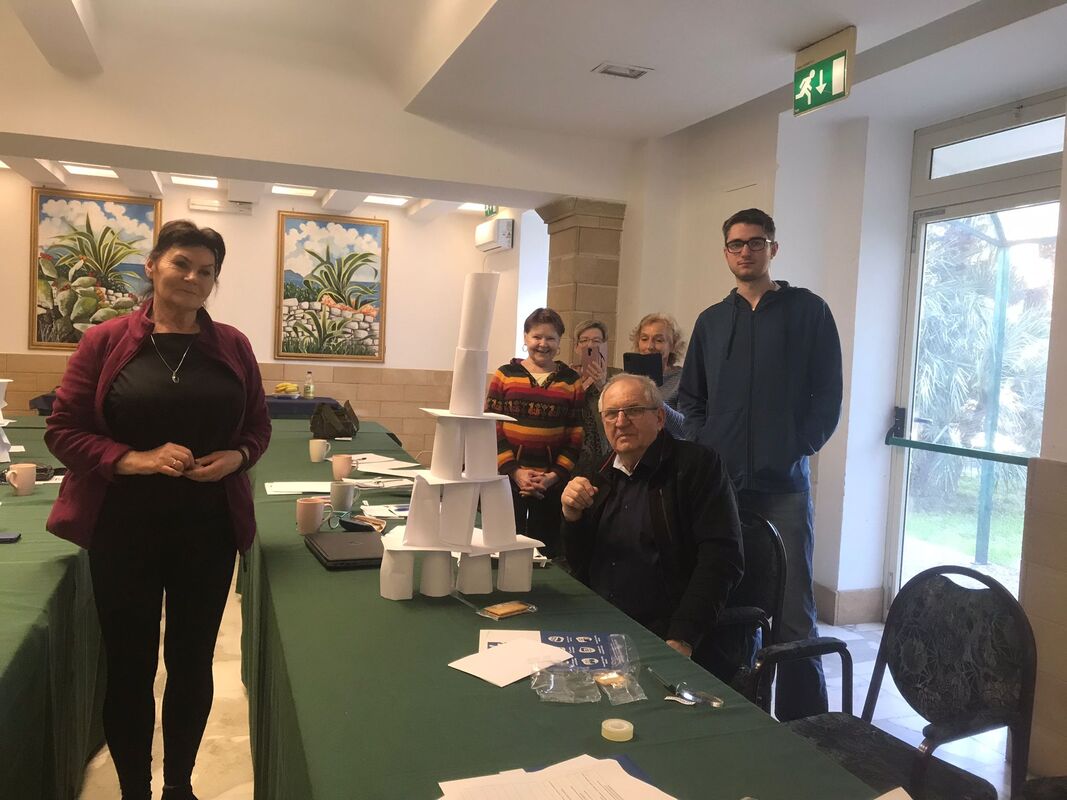
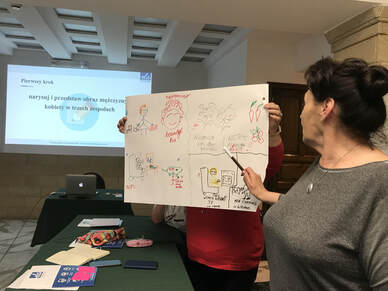
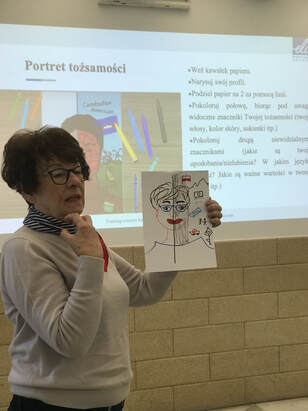
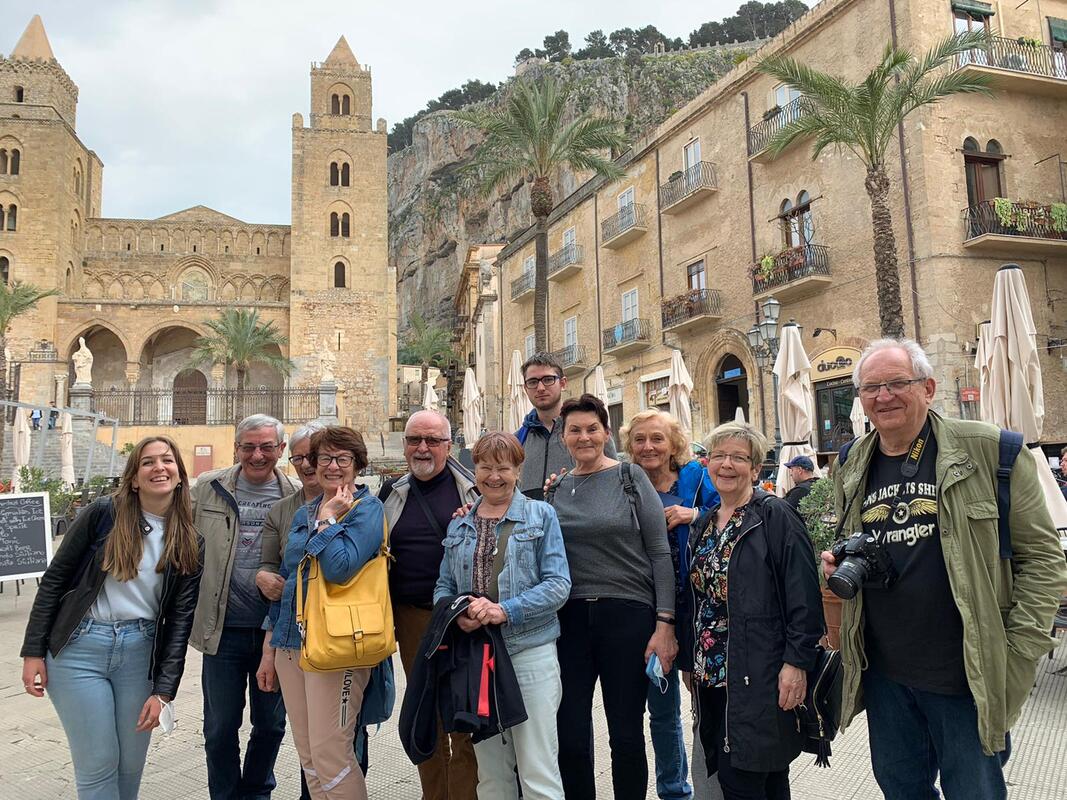
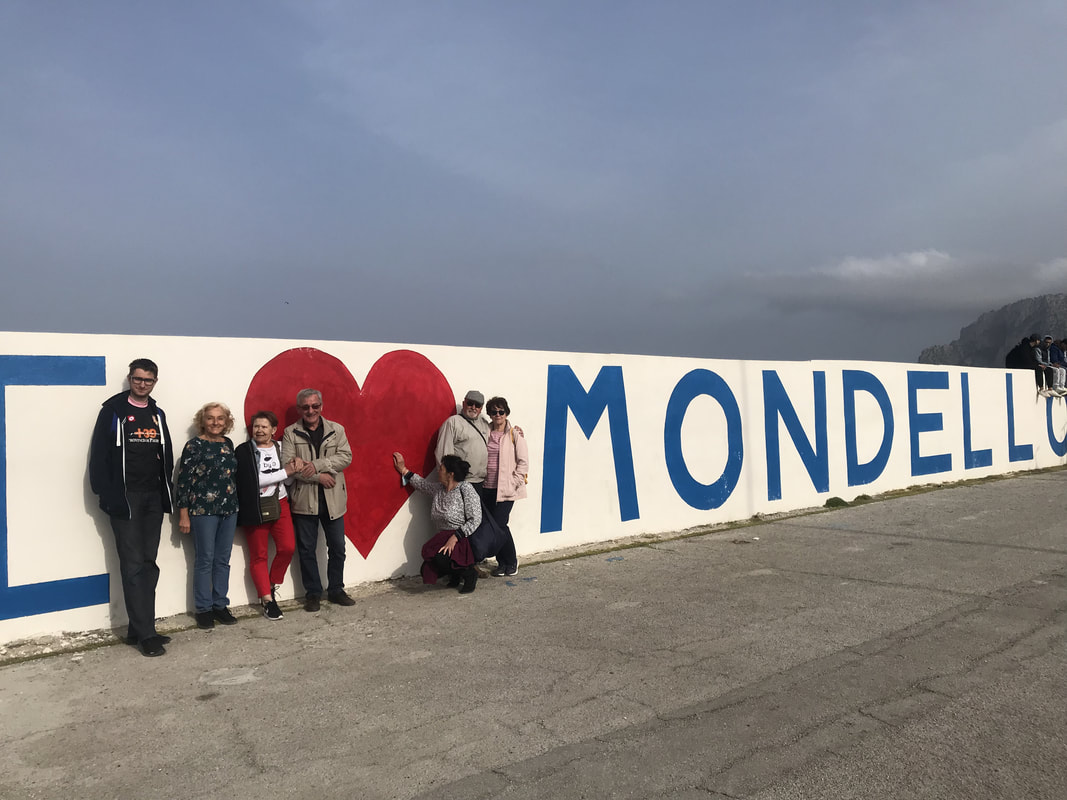
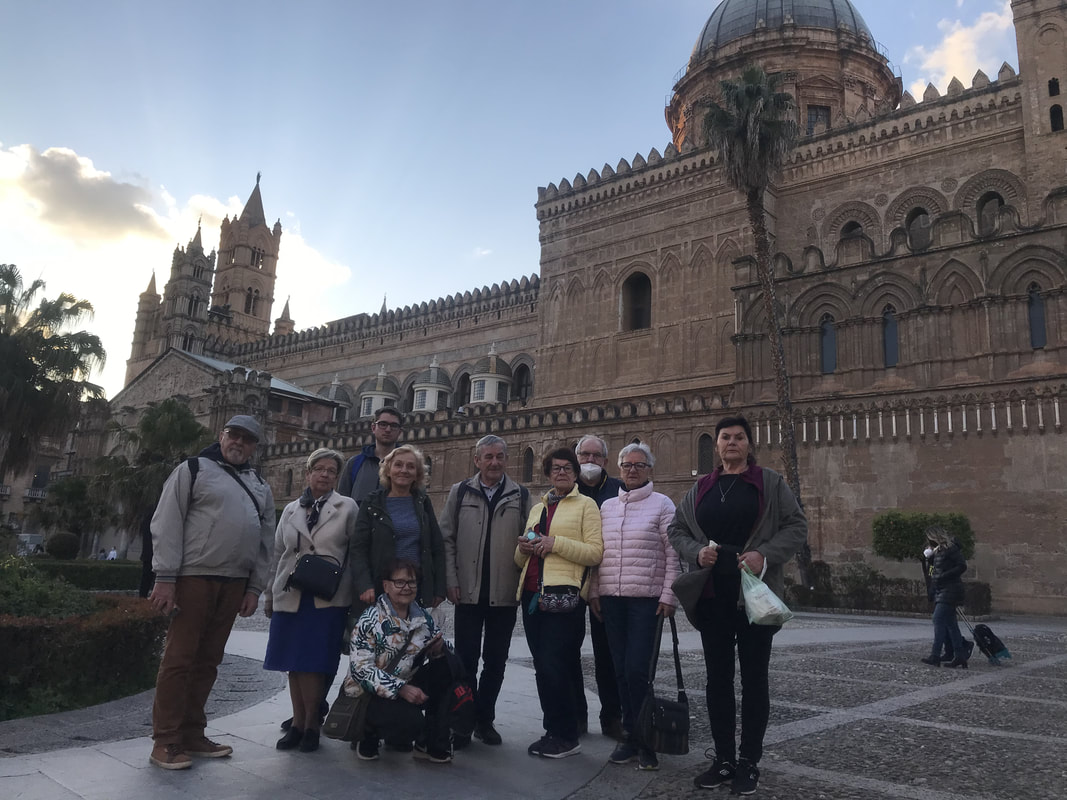
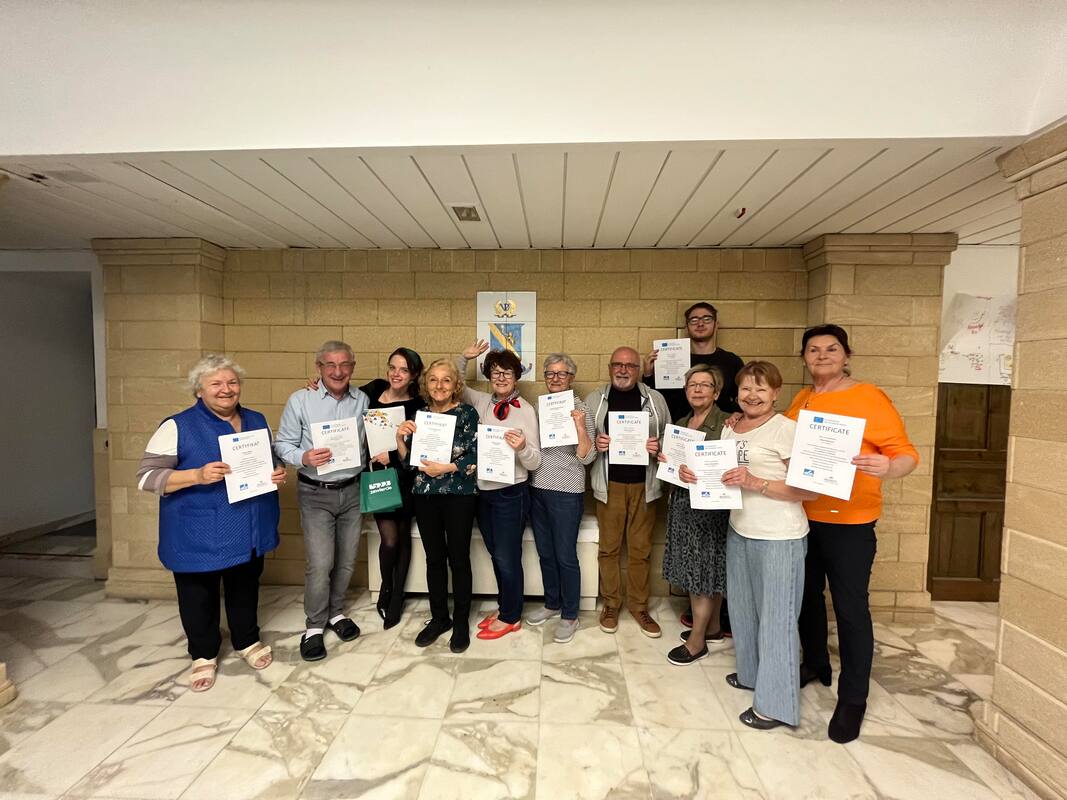
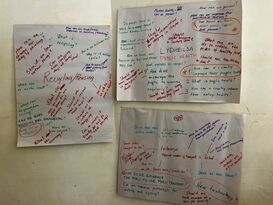
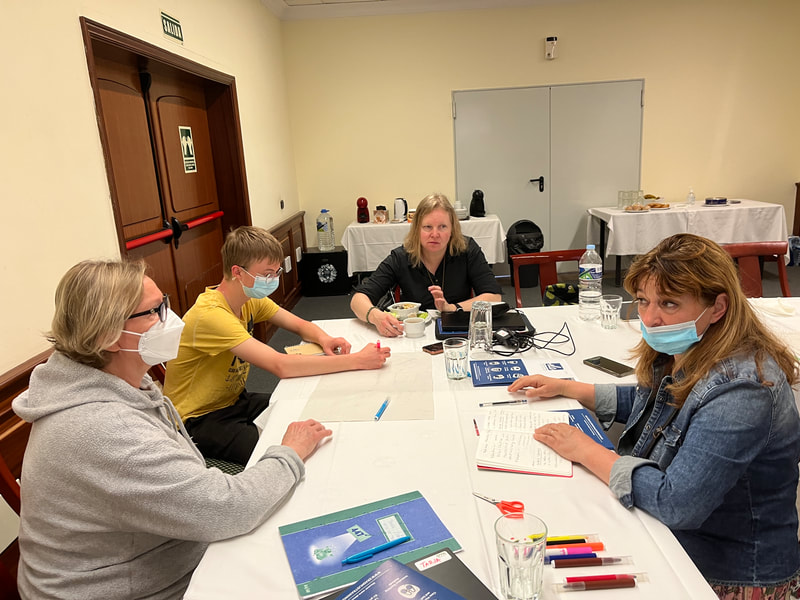
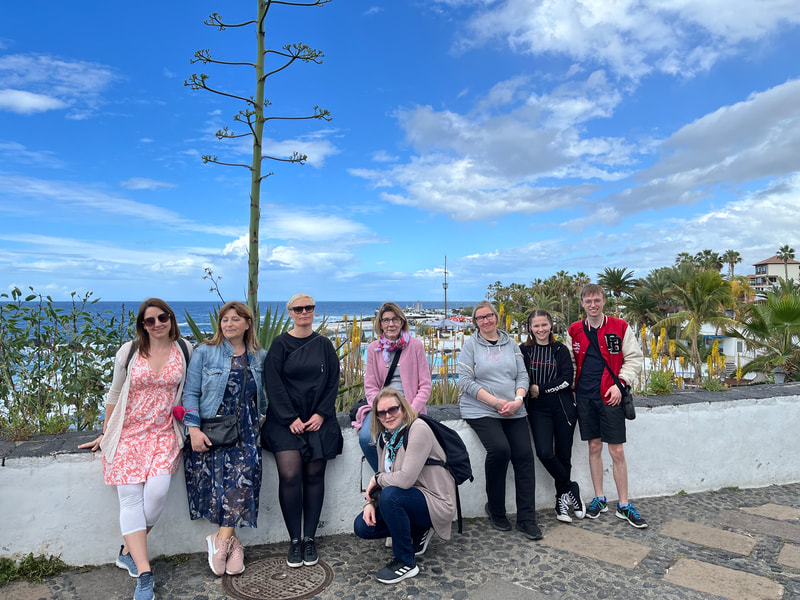
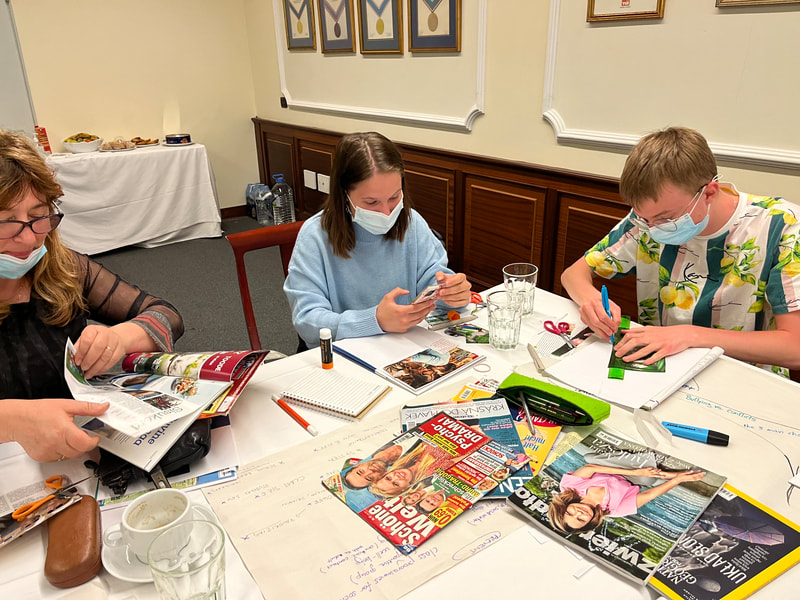
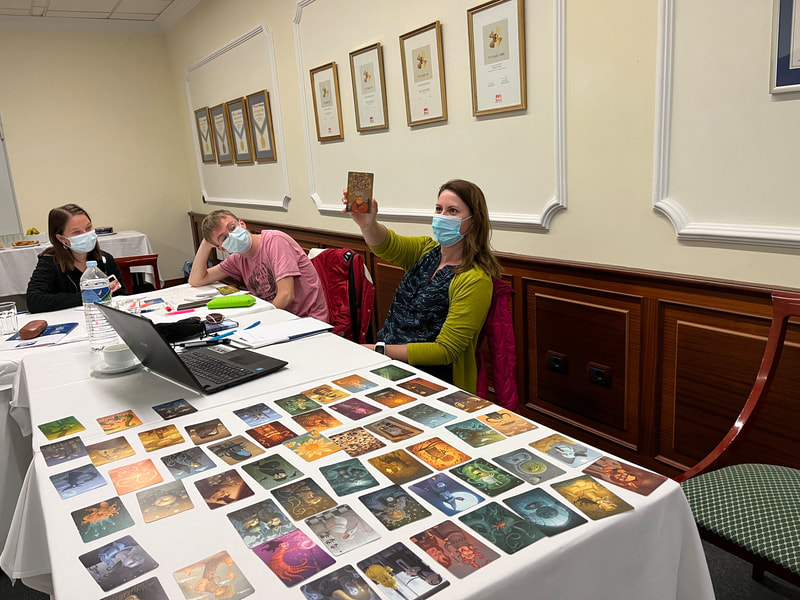
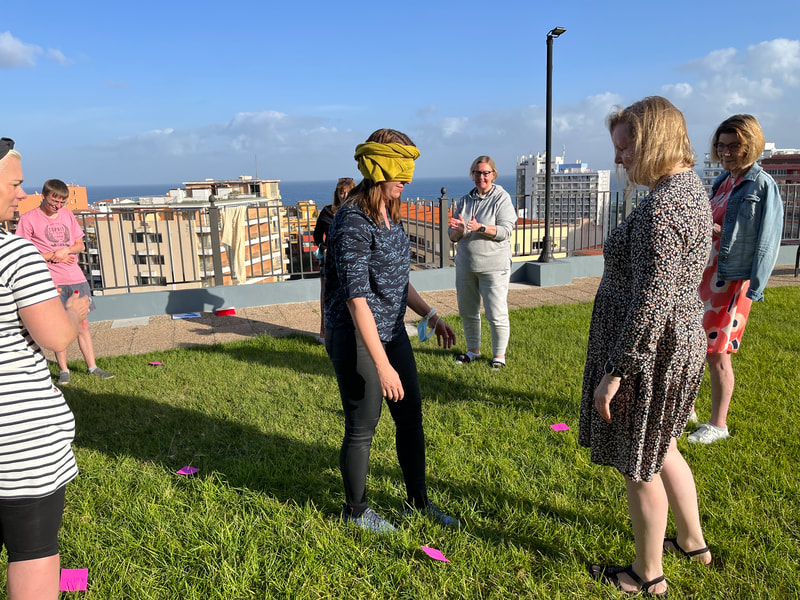
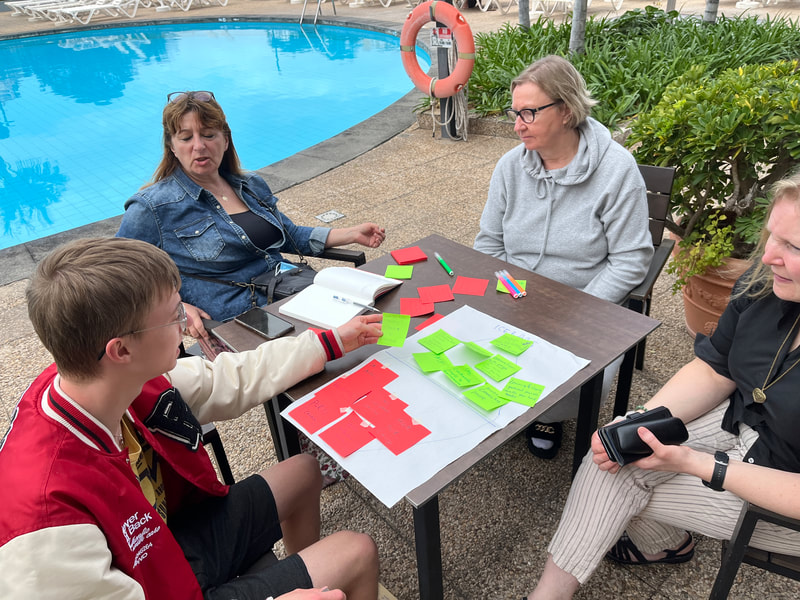
 RSS Feed
RSS Feed









